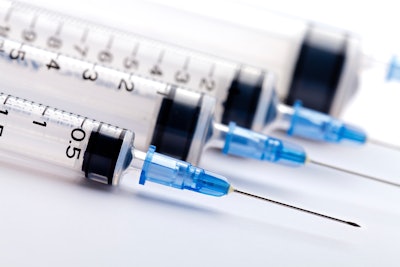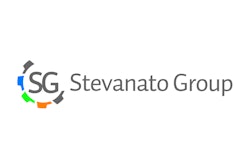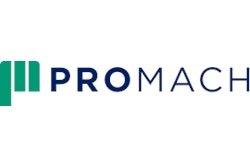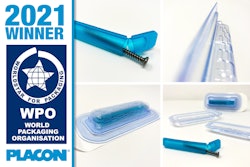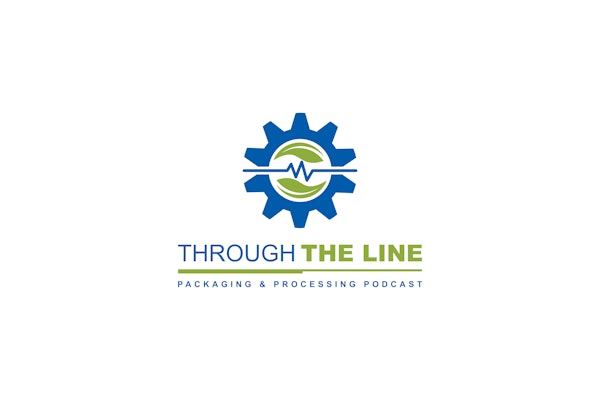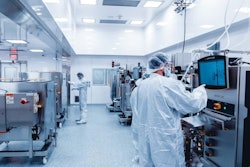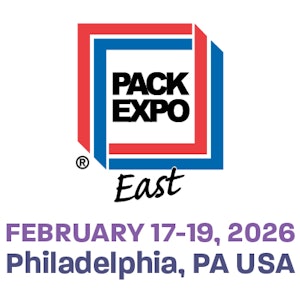Modular manufacturing is on the rise in the pharmaceutical industry. The last few years have shown an increase of interest in modular solutions for a variety of uses and Stevanato Group–a provider of integrated systems for pharma and healthcare–projects that this tendancy will only continue, especially in injectables.
This popularity is due to the flexibility offered by modular manufacturing, allowing pharmaceutical processors to produce a range of products in a single facility with faster changeovers and improved overall equipment effectiveness (OEE). Modular manufacturing breaks down a system into discrete component “modules” that perform specific roles and can be integrated into or removed from the overall structure at will.
The following factors are driving this movement in the injectables market:
- Many treatments are moving from hospital to home, reducing costs for healthcare providers and increasing patient comfort, requiring the need for user-friendly injectable devices, which has been further exacerabated by the COVID-19 pandemic
- The demand for auto-injectors and pen injectors is skyrocketing as life-style related diseases, such as diabetes, become more widespread in both developed and developing countries and as the niche of targeted small batch and personalized medicines, including oncological formulations and certain biologics, grows, driving the need for more mobile, less intrusive, and simpler solutions that remain cost-effective, which in turn demands flexibility on the manufacturing side
These self-administered options allow patients to treat themselves more independently and autonomously than ever in a safe manner. As editor Aaron Hand says in Burgeoning Auto-Injector Market Demands Flexible Production Options, “Auto-injectors help avoid common risks associated with self-administration via syringes, such as incorrect dosages and misuse, serious injuries and discontinuation of treatment.”
The benefits for healthcare providers and patients are clear. As injectables continue to become more customized and self-administered, manufacturers will need to modify the design, engineering, and production of their assembly line equipment to meet these and future demands. This will in turn benefit manufacturers–contractors and service providers in particular, who will need to prove adaptable–as the industry will continue to evolve with varying shapes, sizes, and materials of injectables as well as in product volumes, demand, and sub-categorical issues like target audience differentiation. Production processes will need to be time-efficient and customizable.
A Pharmaceutical Networking article, Defining ideal modular design for effective pharma packaging, seconds this perspective and explains that the modular design must be adapted to the existing development process and embedded into ongoing operations during implementation in order to minimize adaptation demands which will surely come.
Automation and Pharma 4.0
Stevanato Group outlines characteristics that modular manufacturing has that assembly machinery needs in order to keep up with the needs of modern combination products: fast format changeover to reduce costly downtime, flexibility to allow reduced CAPEX investments and achieve shorter time to market, and scalability for additional modules to meet increased volumes.
>>Related: NuTec Employs Epson Cleanroom SCARA Robots to Automate Medical Syringe Manufacturing, Including a COVID-19 Medical Application
Another factor Stevanato Group emphasizes is automation. Though lower volumes of product are typically required with auto- and pen-injector production, efficiently switching to wider-scale production efforts can be necessary. Automating processes can also reduce human intervention and further decrease production downtime.
>>Related: Pharmaceutical Liquid Filling Monobloc with Dual-Weight Verification
The company explains that automation becomes valuable through its reliability, precision, repeatability, and process optimization. The greatest benefits come from incorporating automation into the very beginning stages of the development process, offering an alternative to the prototyping phase with a benchtop through a semi-automatic pilot line. This offers inherent scale-up advantages, allows early de-bugging, and mitigates future risks as the technologies used from pilot line to large-scale, fully automated line are the same.
Says Stevanato Group, “Involving equipment partners with modularity experience from the early stages offers a distinct advantage, since they’ve seen for themselves how initial development work is crucial for establishing early proof of principle and validating the assembly process.”
Looking at containment systems and automation scale-up early on are key, in part due to injectables’ product-specific complexity.
In Industry 4.0 with a Pharma Focus, Pat Reynolds covered the efforts of the Marchesini Group in the life science space, noting, “…once processes are digitized, it opens the door to other exciting possibilities such as machine learning, condition monitoring, remote-access monitoring, and, ultimately, the smart factory. In the smart factory, operations are carried out with minimal manual intervention, high reliability, and maximum flexibility. The automated workflows, synchronization of assets, and improved tracking and scheduling in the smart factory lead to increased yield and quality along with reduced cost and waste.
“Predictably enough, the pharmaceutical industry is anything but immune to the impact of IoT and Industry 4.0, trends that are transforming pharma manufacturing at a rapid pace.”
>>Related: Fewer Ampoule Rejects with Automated Inspection
This is echoed in the Pharmaceutical Networking article which further builds on the potential for Industry 4.0 concepts in modular manufacturing in pharma, such as shared data, artificial intelligence (AI), and increased connectivity enabled through the Internet of Things (IoT).
Systems incorporating these concepts and created by collaborative efforts from Dividella–a supplier of cartoners and secondary packaging machines for the pharmaceutical and biotech industry–and Medipak Systems–a system provider for the pharmaceutical industry–also use the “Plug & Produce concept of vertical integration that imposes a standardized interface between machines in production and the production control system.” This allows modules and production lines to be connected or disconnected through plugging a drive into a computer via a USB interface.
This setup has further allowed Medipak Systems to create advanced systems that include smart packaging, Enterprise Manufacturing Intelligence (EMI), smart devices, and condition monitoring and predictive analytics. These advancements improve end-user experience, user-friendliness for operators, and allow superior decision-making by producers.
Benefits of the modular format
There is a range of benefits that come from modular manufacturing, beyond adapting to market demands, fast changeovers, improved OEE, and up scaling options with automation and plug and play expansions. Modularity can also:
- Deliver standardization–as modules are simplified, produced more economically, and made reusable–and customization by tailoring systems to individual and specialized demands.
- Reduce costs in both implementation and operation
- Ensure faster production and delivery, and when machine utilization rates are high, offer high return on investment within a short timeframe
- Allow manufacturers to meet the need to deploy manufacturing regionally, reduce the cost of goods sold (COGS), increase capacity utilization and speed-to-market, and fulfill multi-product campaigns requiring different production schedules
- Encourage engineering and production teams, through its synergy-centric nature, to collaborate by planning–in parallel–for near-term and longer-range scaling needs
